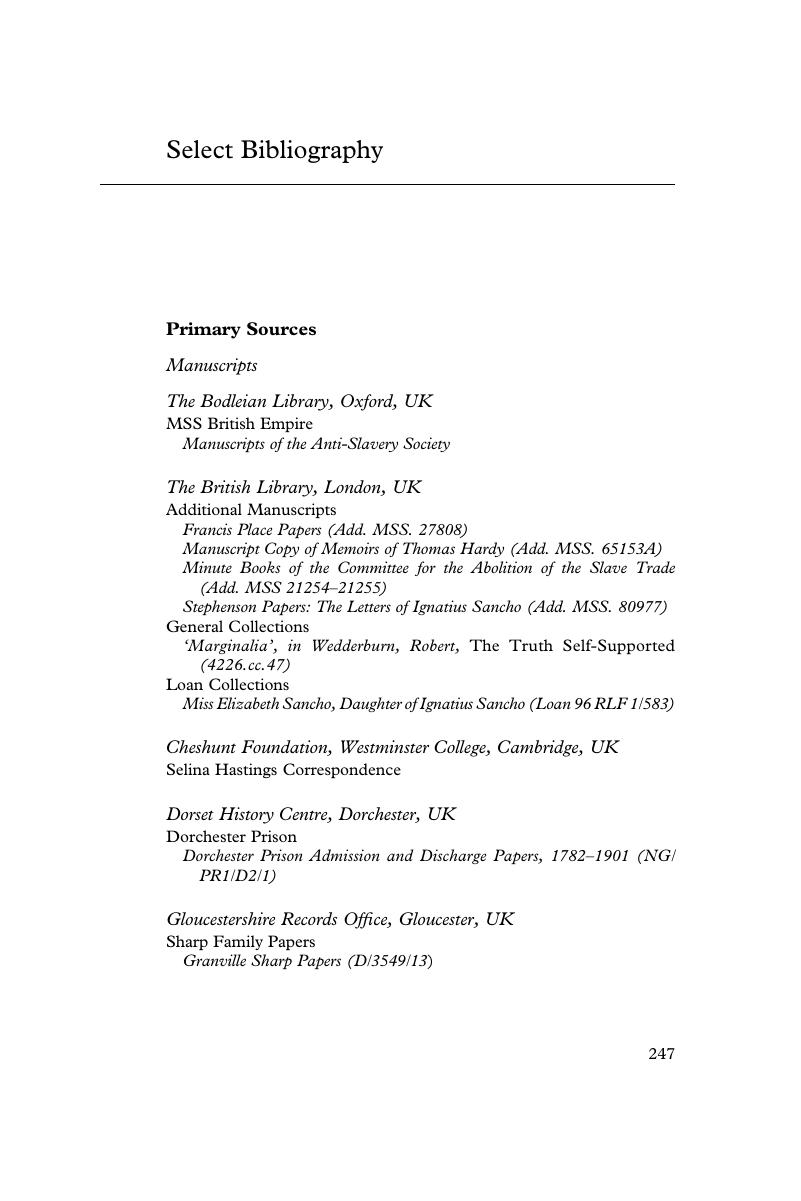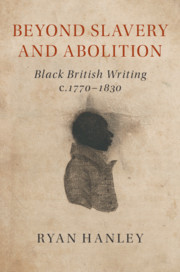Select Bibliography
Published online by Cambridge University Press: 26 October 2018
Summary

- Type
- Chapter
- Information
- Beyond Slavery and AbolitionBlack British Writing, c.1770–1830, pp. 247 - 261Publisher: Cambridge University PressPrint publication year: 2018



